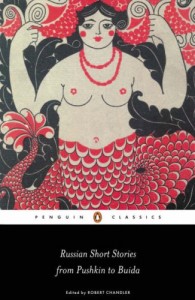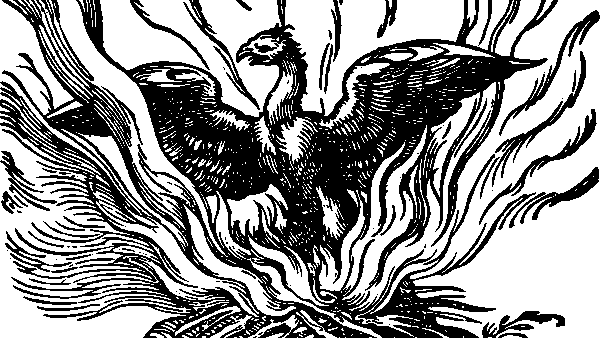I was always going to enjoy this book. I have loved Russian literature from an early age, and this short story collection is a Hall of Fame of Russian literature.
With a few exceptions, which the editor Robert Chandler highlights in his introduction, the big names are all here. The main omissions are Gorky, Grossman, Pasternak and Sholokhov, because their best work is in other forms like novels or poetry, and Nabokov, because agreement couldn’t be reached with his publishers. But there’s still Pushkin and Tolstoy and Dostoevsky and Gogol and Turgenev and Solzhenitsyn and Bulgakov and Chekhov … and also a selection of other writers, some of whom I hadn’t read before, but all of whom I was glad to get to know.
Of course in all collections the quality varies, but I was amazed to find that I liked almost all of these. I also appreciated the editor’s short introduction to each story, giving a quick biography of the writer and some notes on what makes the story worth including, or things you might need to know to understand it. I’d recommend this book to anyone looking to get a flavour of Russian literature, or to people like me who could read Dostoevsky etc all day!
I would like to remember all of the stories so I’m reviewing them individually, split over several posts. Here they are, from the top:
The Queen of Spades by Aleksandr Pushkin
According to Robert Chandler this is “the greatest of all Russian short stories” – quite a claim, but I did enjoy this one. Hermann at first comes across as merely a caricature of a dour, methodical German, refusing to gamble with the rest of his friends, always saving his money sensibly and living off his salary and a small inheritance. But when he hears the story of the old woman who can correctly predict three cards in sequence, he becomes a much more interesting character. He develops an obsession with the story, and goes to find the old woman, feigning romantic interest in her ward in order to get access. There’s a twist or two after that which I won’t spoil, but of course things don’t quite work out as planned. It’s a well-told story that is full of suspense and also makes you think about the superstitions and obsessions that lie beneath the behaviour of a lot of “rational” people.
The Fatalist by Mikhail Lermontov
Lermontov died at just 27, in a duel, the same fate as Pushkin. The Fatalist is the last of five stories that make up the novel A Hero of Our Time. It’s a fascinating study of free will versus fate. Can a person dispose of his life at will, or is the time of his death predestined? Vulich takes a bet on predestination seriously, and plays Russian roulette to prove that he cannot die at that particular time. He survives, but dies later that night, killed by a random drunk in the street. The narrator then takes his own life into his hands to test out the theory as he tries to apprehend the man who killed Vulich. The story raises a lot of questions in a very short space of time about how far free will goes and how much is predestined, and how one person’s fate can affect another’s.
The Greatcoat by Nikolai Gogol
This story made me cry. Gogol establishes carefully, through lots of detail, the humble circumstances of copying clerk Akaky Akakiyevich’s life. We see Akaky Akakiyevich scrimp and save for months so that he can replace his coat, which has become so worn that his work colleagues laugh at him. We see him become fixated on the coat, and share his pride when he can finally buy the new coat. There’s so much investment in the character at that stage that when he is mugged on the way home and loses his coat, it really is devastating. I felt the injustice of it, and the frustration as Akaky Akakiyevich goes around the city visiting various officials, trying to get them to investigate his mugging but getting no help and receiving only humiliation. I was really impressed with how Gogol managed to create so much interest in the character in such short time.
The Knocking by Ivan Turgenev
This one wasn’t so great for me. Just a story of a person travelling in the country, hearing the ‘knocking’ sound of another cart behind, fearing it is highway robbers. There’s quite a bit of suspense as the other cart slowly catches up and you wonder whether they’ll be robbers or not. But there’s also quite a bit of extraneous dialogue and action, such as a long section at the beginning with the character and his servant talking about running out of shot and arranging who will or won’t go on the trip, and then a section a bit later describing the cart almost getting stuck crossing a river. It was reasonably entertaining but felt a bit off the point – more like a rambling anecdote than a sharply focused short story.




There are 5 comments
What a great book – I’ve not encountered this one before. I am rediscovering short stories at the moment and will look out for this one. I like the cover too.
Yes, I liked the cover as well – it’s from a 1915 illustration by D. Mitrokhin, originally used on the cover of a book by Zamyatin, one of the authors in this collection.